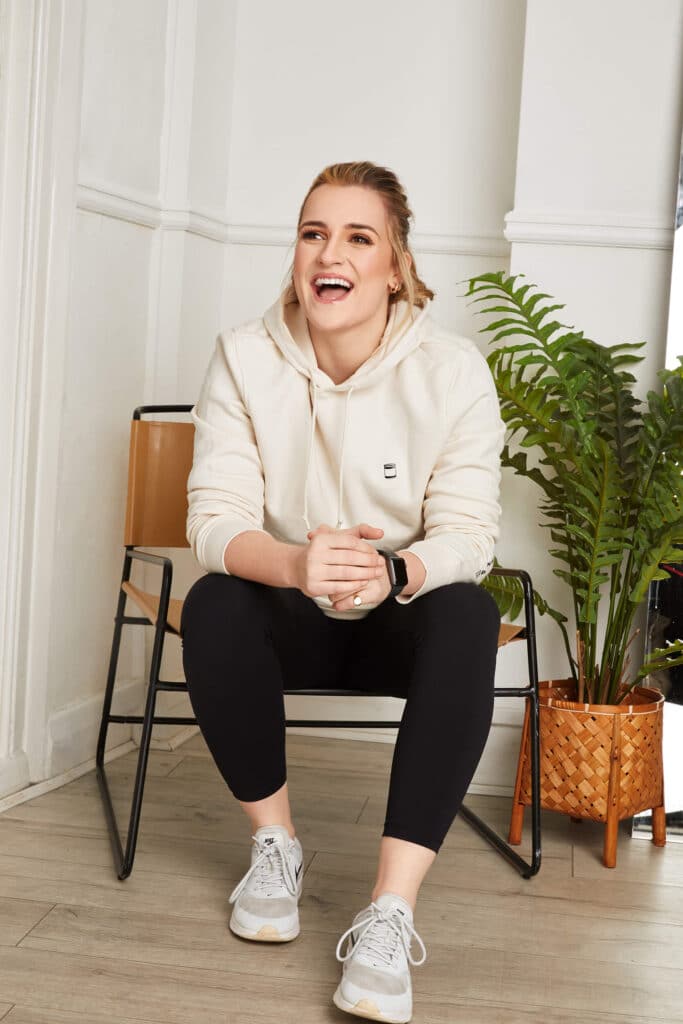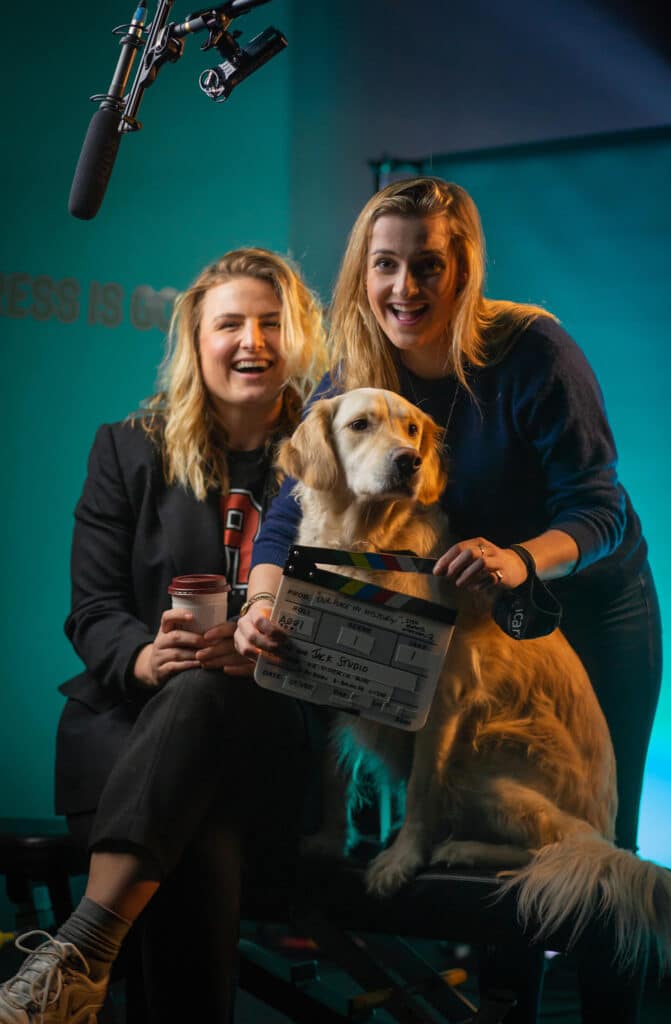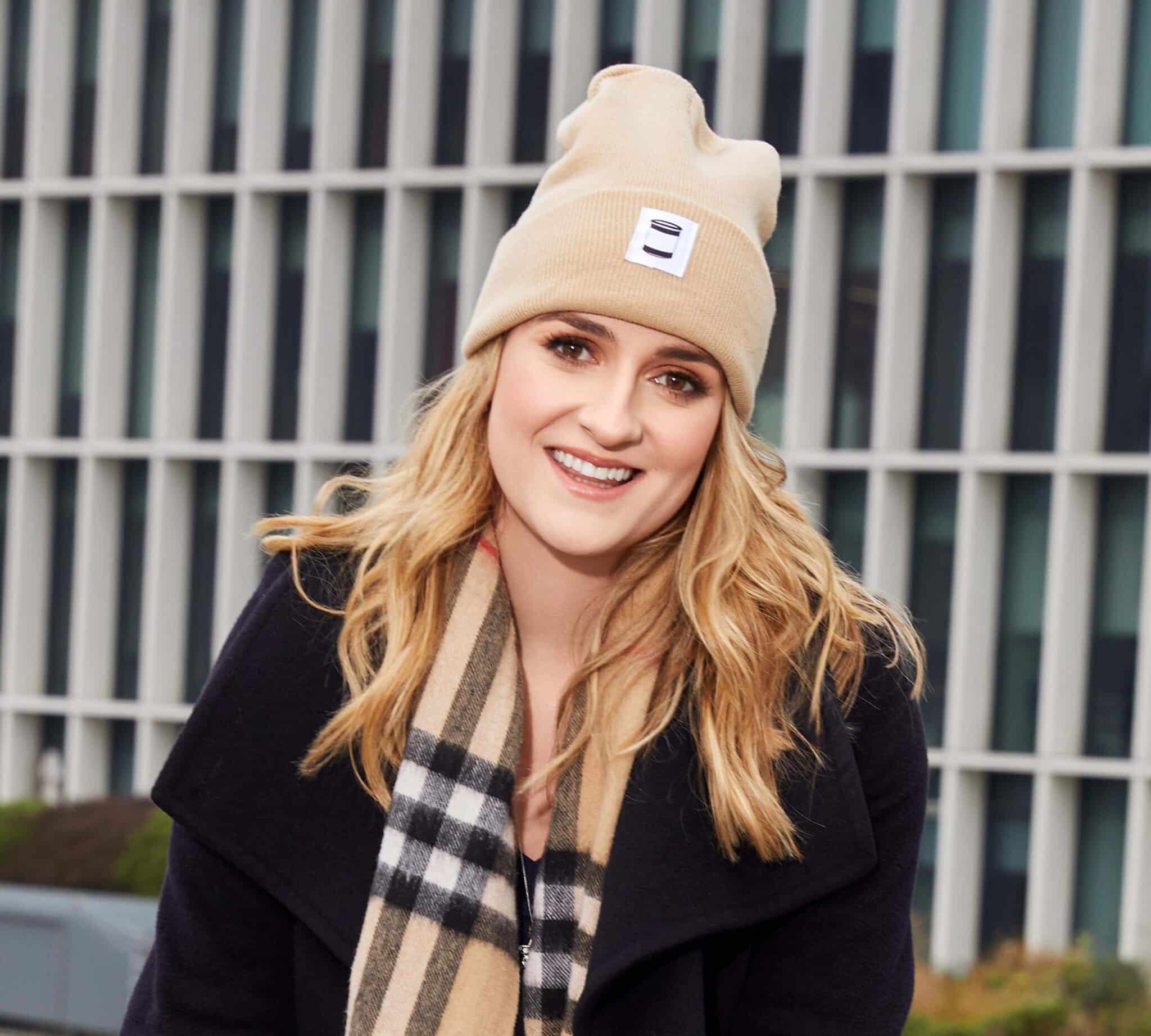We catch with Victoria Rush about her #IAmEnough campaign, women in sports and acclaimed doc No Woman No Try
What were your experiences of playing sport growing up?
Growing up, I was only allowed to participate in female specific sports. I wasn’t particularly welcome to play football at break times and lunchtimes with boys in the school, I was always pushed towards typically female sports. When I started going to the gym at 17 to lift weights and get stronger it was frowned upon by those around me and I was told “that type of exercise wasn’t for girls”.
I felt that I had to look a certain way, but I can only do that by exercising in a way that society told me I had to. Sport and exercise became a very difficult space to be in without feeling judged, but in many ways I was there to make myself fitter so I wasn’t judged for the way I looked. It really was a vicious cycle.
How has your own rugby playing developed over the years?
I’ve never played professionally; it was always a weekend hobby. For me, in any sport, the teams I performed better for were the ones that I enjoyed being with the squad the most. where they were my friends, so playing has always really just built out of love for sport and a great hobby.

Are there still plenty of barriers facing women in the sport?
All the traditional barriers are still there for women in sports, depending on the sport they increase exponentially.
Women’s football has a much better platform than many other sports. The Euros are a big sign of that. The Hundred has been a fantastic platform in cricket and hopefully the women’s rugby World Cup will help to bring down some of these barriers for women in rugby, even more so when it’s on home soil in 2025. The RFU’s plan to fill Twickenham for women’s rugby is their ambition and so exciting for the game.
But the reality is they all face the same problems: access, visibility and funding. There is very little access to sport for women and girls which means many leave it by the age of 14 – this is four times the rate of boys!
Although the visibility of female athletes has increased a lot recently; many women in their mid-20s never believed that sport was a genuine career for them when they were off the pitch. Ultimately, without funding the sports can’t provide access or visibility for these players as it is not a potential career option for them. If they don’t have the coaches, the platform and access to the sport from a young age; a lot of these things boys already have until really action is taken unfortunately this will continue.
Did you always have aspirations to work in film?
I always wanted to work on a creative film, but it was never really something I thought I would do. No Woman No Try was created because I wanted to tell the story rather than because I wanted to make a film.
It’s just been a fantastic combination of everything I’ve ever done with my life from marketing to theatre when I was a teenager, to rugby and sport growing up so it really just brought everything together full circle.
How long was No Woman No Try in the making?
No Woman No Try took 14 months from when we started filming to release, which is really a small space of time. When you consider it was a side of the desk hobby rather than a full-time job and that’s down to the fantastic people involved in making a film, putting everything into it, and every minute of spare time in every day off into building No Woman No Try.
How do you look back on the filming process?
The filming process was my favourite part, I had the privilege to spend time with incredible women and men in the film which I will forever be grateful for those experiences. They gave their time, they believed in the vision and the benefits of the film too, not just for rugby but women in sport in general. I look back on it with incredibly fond memories and I’m honestly sad that it’s over; I’d love to do it all over again!
Are you proud of the final documentary?
I am so proud of No Woman No Try. I cannot believe it became as huge as it did, considering it was, what I considered, just a small idea I had during lockdown. We created an inspirational film at the perfect time for sport. It has been seen across the world and is what I always hoped it could be, an inspiration and a catalyst for change. I still can’t believe it happened.
How do you look back on starting the #IAmEnough campaign?
The #IAmEnough campaign I look back on as very similar to No Woman No Try. It was an idea at the time to help more women and girls not to have to feel the same way I did when I was growing up. It started out of necessity for change.
From there, this grew into something much bigger, a much greater aspiration and source of inspiration. Again, I can’t believe it was as big as it was; the fact that players all over the world, from international athletes to broadcasters, were talking about this campaign for me was incredible. I started it just to help other women to feel a bit better about themselves and the way it took off was mind blowing. I am forever grateful for everyone who believed in the campaign and made it their own.
Were you surprised at how it took off?
Yes and no. I’m surprised by how both the campaign and the film took off. That’s because I can’t believe I did it. But in many ways it sadly doesn’t surprise me that so many women resonated with the feeling whether in rugby or not.
Every woman I know has been made to feel out of place or not welcome – whether that is in sport or at work or in a boardroom- and that has to change! Movements like #IAmEnough are a huge part of that change; helping more women know they’re not alone and discovering what is possible when we all come together.

How is your current tour going?
It’s going exceptionally well! We are about to start the November leg which covers Scotland, the Midlands and south-east of England. Every time I’m inspired by the people that show up to the events from players, kids, male coaches, RFU committee members, we’ve had such an incredible group of people come to listen to share their stories and experiences and to learn from each other. The community of rugby deserves to know that they’re not alone, and that we can all learn from each other. The love and support and happiness at each and every event makes it so worth it!
What’s next for you Victoria?
I want to continue to help grow the profile of female athletes however that may be. I want to make more women’s sport documentaries for all sports! If anyone works in sport and wants to make one message me. The future is women in sports and it’s about time we realised it.
I want to make the world a better place for everybody who believes that they don’t have a place in the world.
Follow Victoria’s story and find tour details on social media @victoriarush. No Woman No Try can be found on Amazon Prime









